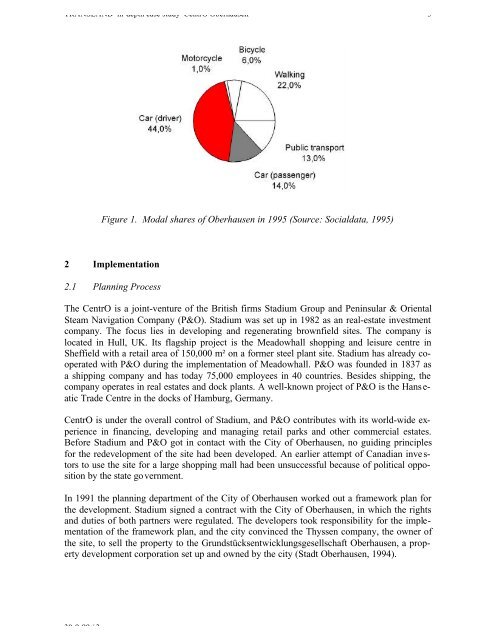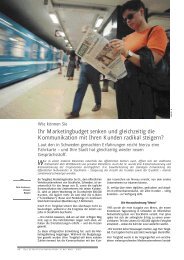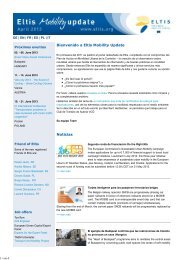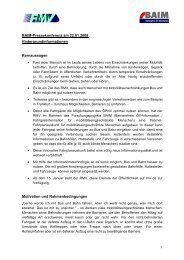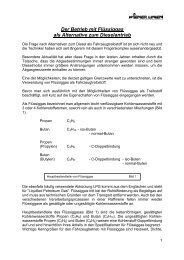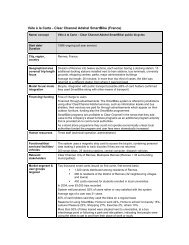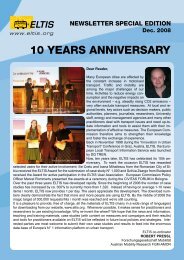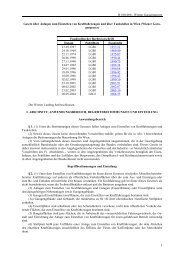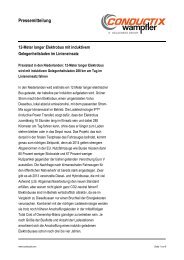CentrO Oberhausen - Eltis
CentrO Oberhausen - Eltis
CentrO Oberhausen - Eltis
You also want an ePaper? Increase the reach of your titles
YUMPU automatically turns print PDFs into web optimized ePapers that Google loves.
TRANSLAND in-depth case study <strong>CentrO</strong> <strong>Oberhausen</strong> 3<br />
30-9-99 / 3<br />
Figure 1. Modal shares of <strong>Oberhausen</strong> in 1995 (Source: Socialdata, 1995)<br />
2 Implementation<br />
2.1 Planning Process<br />
The <strong>CentrO</strong> is a joint-venture of the British firms Stadium Group and Peninsular & Oriental<br />
Steam Navigation Company (P&O). Stadium was set up in 1982 as an real-estate investment<br />
company. The focus lies in developing and regenerating brownfield sites. The company is<br />
located in Hull, UK. Its flagship project is the Meadowhall shopping and leisure centre in<br />
Sheffield with a retail area of 150,000 m² on a former steel plant site. Stadium has already cooperated<br />
with P&O during the implementation of Meadowhall. P&O was founded in 1837 as<br />
a shipping company and has today 75,000 employees in 40 countries. Besides shipping, the<br />
company operates in real estates and dock plants. A well-known project of P&O is the Hanseatic<br />
Trade Centre in the docks of Hamburg, Germany.<br />
<strong>CentrO</strong> is under the overall control of Stadium, and P&O contributes with its world-wide experience<br />
in financing, developing and managing retail parks and other commercial estates.<br />
Before Stadium and P&O got in contact with the City of <strong>Oberhausen</strong>, no guiding principles<br />
for the redevelopment of the site had been developed. An earlier attempt of Canadian investors<br />
to use the site for a large shopping mall had been unsuccessful because of political opposition<br />
by the state government.<br />
In 1991 the planning department of the City of <strong>Oberhausen</strong> worked out a framework plan for<br />
the development. Stadium signed a contract with the City of <strong>Oberhausen</strong>, in which the rights<br />
and duties of both partners were regulated. The developers took responsibility for the implementation<br />
of the framework plan, and the city convinced the Thyssen company, the owner of<br />
the site, to sell the property to the Grundstücksentwicklungsgesellschaft <strong>Oberhausen</strong>, a property<br />
development corporation set up and owned by the city (Stadt <strong>Oberhausen</strong>, 1994).


